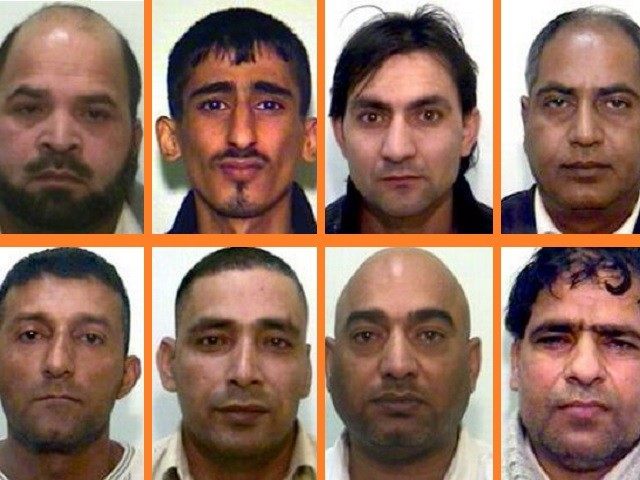Boris Johnson’s government has rejected a petition signed by more than 120,000 people demanding the release of a report on the ethnic background of grooming rape gangs.
The no-stone-unturned investigation was announced by Home Secretary Priti Patel’s predecessor, Sajid Javid, in 2018, with a promise that he would “not let cultural or political sensitivities get in the way of understanding the problem and doing something about it”.
So-called grooming gangs had been found to be comprised overwhelmingly of Muslim men, usually although not always of Pakistani heritage, who preyed overwhelmingly on non-Muslim girls and young women, usually although not always working-class white girls.
The gangs abused girls on an “industrial” scale for decades, with probes finding that police, social workers, and other authority figures had turned a blind eye to it — and sometimes persecuted the victims or their families when they tried to get involved — for fear that doing something about the crimes would “inflame” the Muslim community or result in officials being accused of “racism”.
The Home Office inquiry was supposed to finally lift the lid on the ethnic dimensions of the crime — judges and law enforcement are to this day resisting treating them as racially-aggravated — at the highest level of government. Yet despite the initial fanfare, members of the public who wondered why they were receiving no word on the progress of the investigation were informed that it would remain “internal”.
Attempts to uncover the report via the Freedom of Information Act failed, with Home Office bureaucrats insisting that releasing their findings would not be in “the public interest”, and that they needed to “protect the ‘safe space’ necessary for ministers and officials to consider policy options in private”.
After all the years of official failure on grooming gangs — which have never resulted in any individual senior police officer, bureaucrat, or current or former politician actually facing sanctions, despite multiple admissions that victims had been “collectively” let down — many members of the public were unsatisfied with this, to say the least, resorting to an official petition for the findings to be made public.
This quickly passed 10,000 signatures, necessitating an official response from the government, and then 100,000 signatures, meaning it must be considered for a full parliamentary debate.
After more than 50 days, the government has finally provided that response — the possibility of a parliamentary debate has not yet been discussed, likely due to the ongoing coronavirus pandemic — and, as before, rejected the demands for transparency, in the vaguest of terms.
“Child sexual abusers come from all walks of life, and from many different age groups, communities, ethnicities and faiths,” the response, provided by the Home Office, states, in the same politically terms Javid had suggested the report would get away from.
“To help end this terrible form of abuse, the Home Office has been investigating the characteristics of group-based child sexual exploitation,” they continued, telling petitioners what they already knew.
“It is right, proper and routine for the Government to carry out internal fact-finding work as part of policy development, as we do across a range of crime threats. Any insights gained from this important internal work will be used to inform our future action to end this devastating abuse, including the forthcoming Strategy,” they continued — leaving petitioners to infer that said fact-finding work will remain “internal”.
“The Government appreciates public interest in this matter and shares the nation’s outrage and determination to end this atrocious form of abuse. Mistakes have undoubtedly been made in the past and must never be allowed to happen again,” they admitted — but while neatly skimming over the fact that they continuing to not make their findings publicly available.
Much of the rest of the response was padded out with references to all the supposed determination of the government to bring “vile offenders” to justice — although no action has been taken to prevent grooming gang rapists from continuing to enjoy automatically early release on licence after serving relatively short prison terms, or to prevent them from returning to the areas where their former victims live.
Some reported encountering abusers in the street and other public places, even in some particular cases where the government had promised they would be stripped of their British citizenship and deported.
To date, it appears that none of those promises have been followed through.
